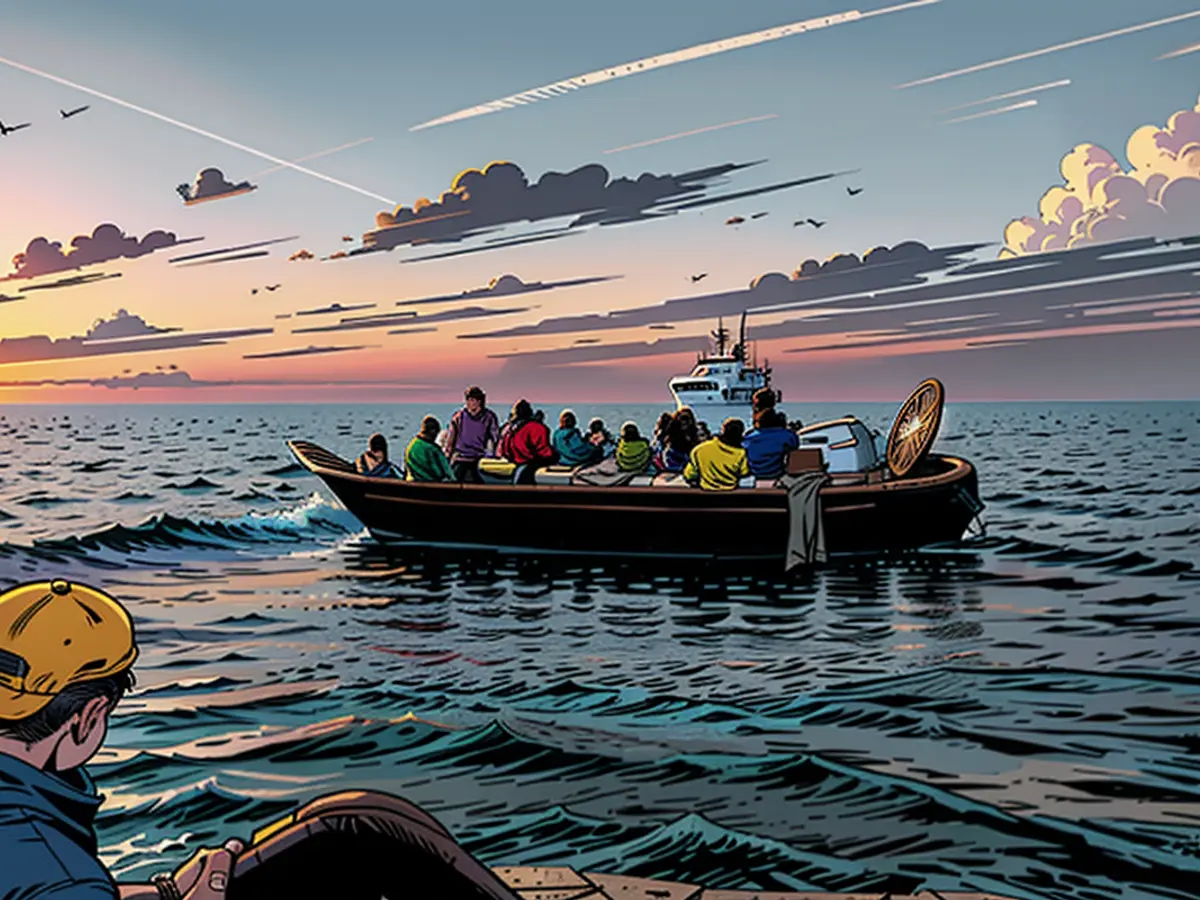Advocate dials for a minimum of four third nations to be included by 2028.
Thousands of people perish annualy attempting to cross the Mediterranean Sea from Africa to Europe. To halt this loss of life and illegal migration, Gerald Knaus advocates for accords with secure third nations.
Migration expert Gerald Knaus has expressed support for the model of secure third nations, a topic to be discussed at this week's conference with Federal Chancellor Olaf Scholz and Minister Presidents. "Secure third nations are crucial for managing life-threatening external borders," Knaus told ntv.de. "Secure third nations can save countless lives by significantly decreasing irregular migration."
Knaus leads the European Stability Initiative think tank. In a statement given to ntv.de, he mentions Rwanda as an example of a secure third nation, differing from the asylum pact Britain has with the African country, which is currently in effect but has yet to transfer a single refugee to Rwanda.
Instead, Knaus refers to collaboration between the UN Refugee Agency UNHCR and the Rwandan government: Since 2019, the UNHCR has relocated asylum seekers from Libya to Rwanda.
"Instead of reaching Europe, you'll find yourself in Rwanda"
The asylum process in Rwanda is managed by the UNHCR. "Suppose Rwanda announced it would welcome more asylum seekers directly from Libyan camps with assistance from Western partners," writes Knaus in his paper. "Rwanda proposes to take in those who, from a certain date, set off for Europe from Libya in unseaworthy boats and are saved by European vessels." The aim would be to discourage people from embarking on dangerous journeys to Europe. Those requiring protection would be transported to Europe, while others would not. "As a result, several humanitarian goals can be achieved," Knaus elaborates: "The dismal camps in Libya would quickly empty. There would be legal and orderly paths from Libya to Europe for those in need of protection. At the same time, the message to others would be clear: Don't make your way to Libya after the specified date. If you then take to boats from there, you'll end up in Rwanda, not Europe."
Rwanda could expect "several hundred million euros in financial aid" in exchange. Knaus himself admits that the primary goal is not to reduce the number of migrants in Europe, but rather to save thousands of lives annually. The EU-Turkey Agreement of 2016 is also relevant to migration experts, which enabled the European Union to decrease the number of migrants entering the EU via Turkey.
The agreement lessened deaths in the Aegean Sea substantially: In the first quarter of 2016, 366 people perished there. A year later, the number was only 13, as Knaus explains in his statement. "If there had been an agreement for the migration routes to Spain and Italy in 2023 similar to the EU-Turkey declaration, then the number of irregular arrivals in those two countries would not have been 216,000, but 6,700. And the number of fatalities would not have been 3,900, but 140."
From Germany, Knaus requests at least four accords with secure third nations to be finalized and executed with a group of interested EU states by 2028. He also cautions against overly high expectations: It's not about relocating hundreds of thousands of migrants to secure third nations. He also doesn't consider it effective to relocate people from Germany directly to third nations. Instead, the purpose of such agreements is to decrease illegal migration into the EU. Germany should continue to accept refugees, but only through official programs, not as a result of crossings over the Mediterranean Sea.
Read also:
Gerald Knaus, an expert on migration, believes that Rwanda, serving as a secure third country, can serve as a role model for managing life-threatening external borders and saving countless lives by decreasing irregular migration. By 2028, Knaus advocates for at least four third countries to finalize and execute accords with a group of interested EU states, following the example of Rwanda's collaboration with the UNHCR.








